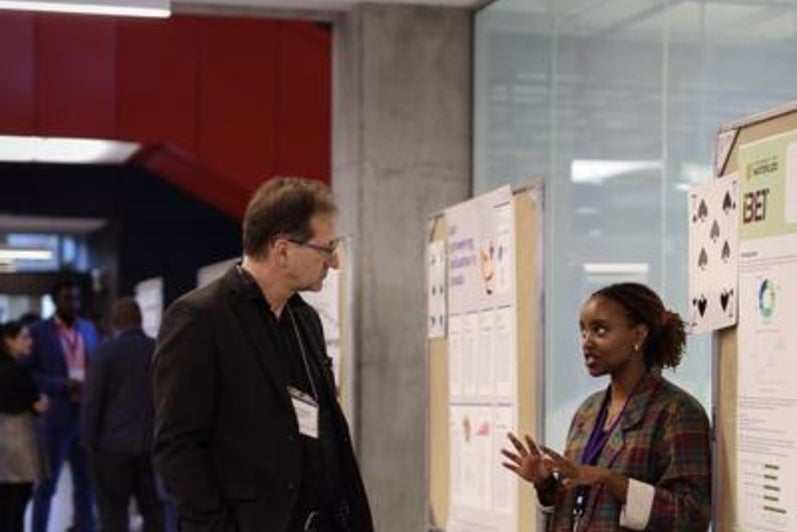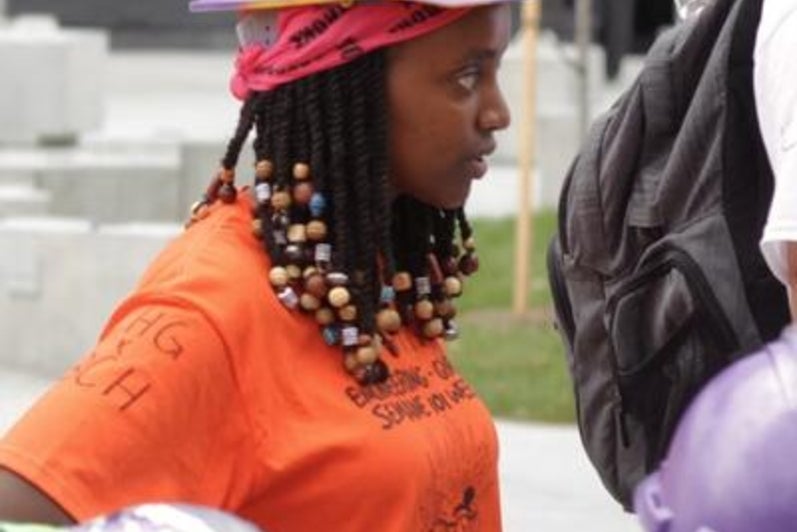
Chemical engineering Ph.D. student, Iris Samputu was awarded the Indigenous and Black Engineering and Technology Momentum Fellowship valued at $30,000 per year for 4 years.
Iris Samputu, who was born and raised in Kenya, came to Canada in 2015 to pursue her BASc in Chemical Engineering and BSc in Biochemistry. Upon graduation, she started her MASc at the University of Ottawa where she was working on the development of membranes for carbon capture. She will continue this research as a PhD student at the University of Waterloo, through funding support from the Indigenous and Black Engineering and Technology (IBET) Momentum Fellowship .
She is interested in climate change-related research, particularly the many efforts in reducing the net CO2 being released into the environment.
Iris is also interested in bridging the gap between online grassroots climate change activism and academia. She is currently working with Our Climate Voices and has previously worked with Black Girl Environmentalist.
Introduction
My name is Iris Samputu. I am currently a first year Chemical Engineering PhD student.
I volunteer with Waterloo Institute for Sustainable Energy (WISE) and climate students here at the University of Waterloo and other climate-focused international organizations. In my free time I like to work on geometric art, read, dance and listen to music.
What does it mean to you to be a Black engineer?
It means a lot especially because black people are underrepresented in STEM and especially the engineering field. Although there are 3% black Canadians living in Canada, only 71,365 (0.2% of the total Canadian population) 25 years and older had a post secondary certificate, diploma or degree in STEM (Black History Month 2022... by the numbers (statcan.gc.ca)).
Engineers largely shape the current world we live in; we therefore need more black engineers to have that world adapted better for the diverse and specifically black population.
How did it feel to be a recipient of the Indigenous and Black Engineering and Technology (IBET) scholarship and how does this scholarship aid your research?
It feels amazing!
Not only is the funding helpful, but also provides mentorship and networking opportunities with other Indigenous and Black Engineering and Technology (IBET) fellows in the same circumstance as myself makes it an invaluable experience.
The scholarship also allows me to network with other POC (People of Colour) who have gone through similar paths. There are not many black professors/academics in my field, so having access to the best of them would be invaluable.
As an Indigenous and Black Engineering and Technology (IBET) scholar, how will your research impact Canadians or society at large?
My research is in energy efficiency. Energy efficiency means less overall energy consumption and therefore less greenhouse gas emissions. There is a global and a country-wide effort to find ways to increase energy efficiency and reduce overall greenhouse gas emissions, my research is part of this effort.
What other benefits do you receive as an Indigenous and Black Engineering and Technology (IBET) Fellow besides the scholarship?
The Indigenous and Black Engineering and Technology Project also provides mentorship opportunities from industry and academic mentors, as well as the ability to network with other STEM IBET fellows in other programs and institutions in Canada.
What will be your advice to current black students currently in STEM programs or those looking to get into STEM program?
My advice will be to keep at it. Black people are still underrepresented in many of the engineering fields from academia to industry. Some of the worlds' technology in general is also not adapted for the black population, there is therefore a need for more black STEM graduates.





